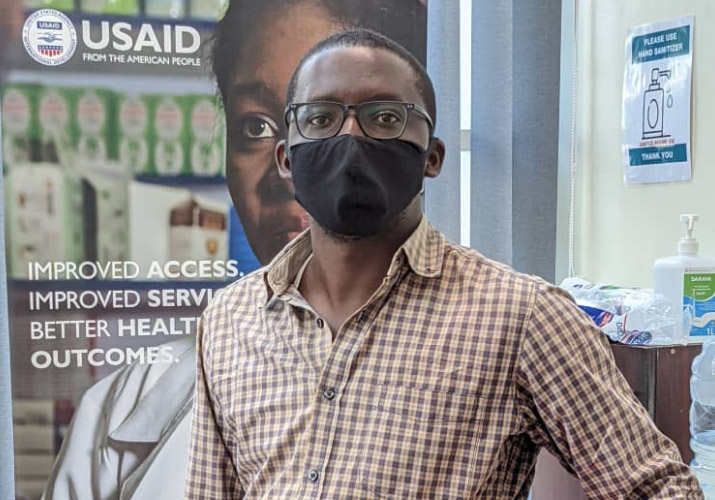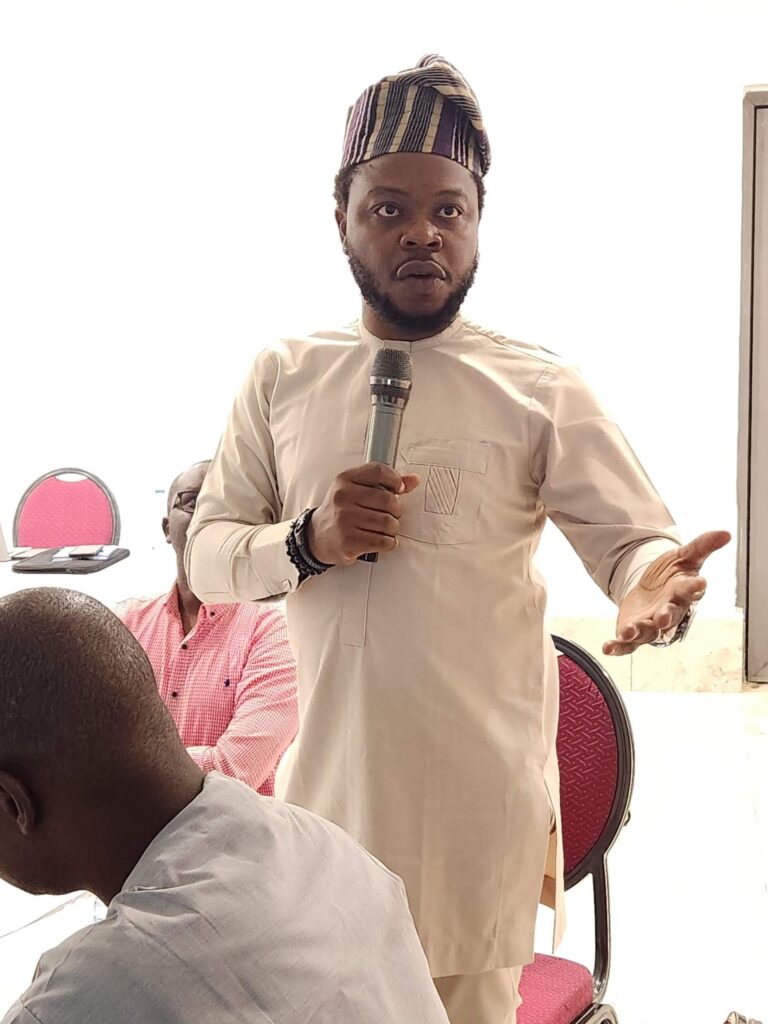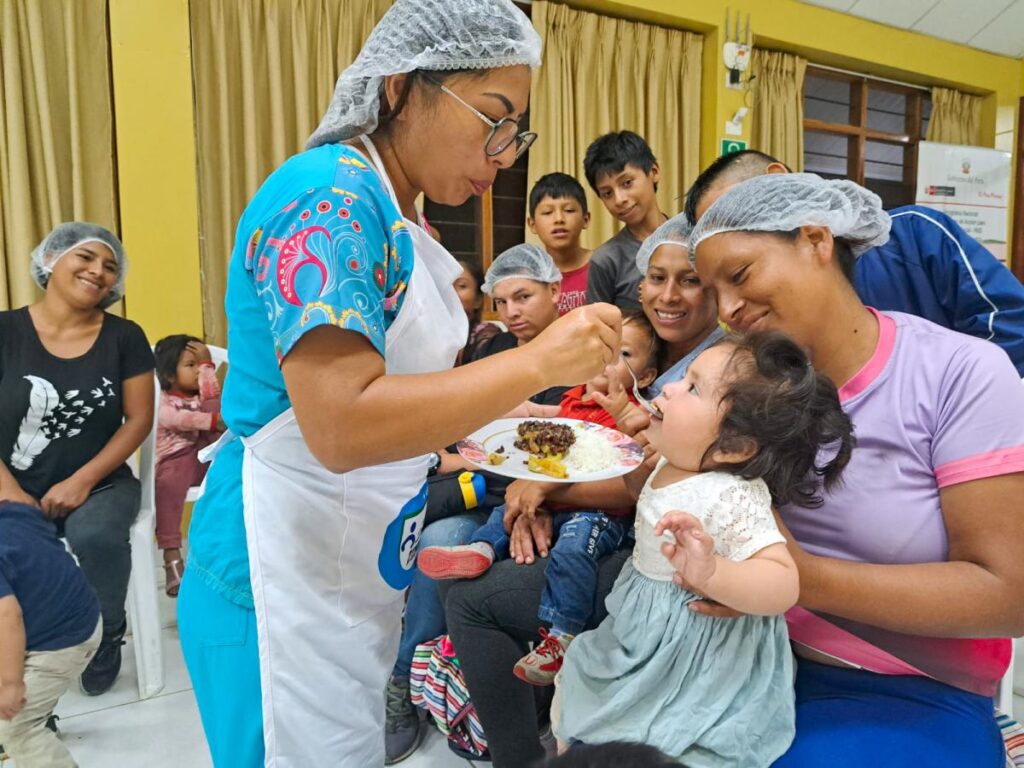On the Frontlines of a Health Security ‘Hotspot,’ Dr. Reuben Kiggundu is Making Uganda a Safer Place
On the Frontlines of a Health Security ‘Hotspot,’ Dr. Reuben Kiggundu is Making Uganda a Safer Place

Uganda has long been considered as a hotspot for emerging and re-emerging infectious disease epidemics, including Ebola, Marburg virus disease, plague, Rift Valley fever, yellow fever, and Crimean-Congo hemorrhagic fever.
Yet, to combat such outbreaks, Uganda has been at the forefront of African countries developing national action plans for health security and addressing capacity gaps in fighting infectious disease outbreaks, antimicrobial resistance, and other global health security threats. For the past five years, MSH’s Dr. Reuben Kiggundu has been on the frontlines, supporting the establishment of Uganda’s National Health Security program, while assisting other African countries in the process. Currently, Dr. Kiggundu serves as Country Project Director for the USAID Medicines, Technologies, and Pharmaceutical Services (MTaPS) Program in Uganda. We spoke with Dr. Kiggundu to learn more about his path into public health and passion for strengthening health systems for greater health security.
What drew you into the field of public health, and global health security in particular?
My career path to public health has not been a straight one. As a new graduate [from Makerere Medical School] in 2011, I took a position as a medical officer in Uganda’s largest national referral hospital. Taking care of large numbers of critically ill patients was a daunting task; an emotional roller coaster. At one moment, I might celebrate sending a patient who had arrived in a coma home, and in the next, feel sad for having lost a patient who I felt sure would make it.
I enjoyed attending to patients, but along the way, inadequacies in the health system became more apparent. And I felt I could contribute more to the challenges I saw leading to deficiencies in patient care. I then applied to the University of Manchester and was admitted into their long-distance learning program to obtain a Master’s in Public Health. But I could not have anticipated what a life-changing experience it would be.
Life-changing in what ways?
Well, I started my training at the peak of the Ebola outbreak in West Africa. Most of my required reading and coursework in epidemiology and communicable disease control referenced that outbreak. And every completed course helped make more sense of the work I was doing every day in the hospital. I learned about the Global Health Security Agenda and disease outbreaks. The bits and pieces started coming together. My approach to IPC [infection prevention and control], antibiotic use, and managing patients who developed fevers during hospital admission had changed.
After this, I felt like I had new lenses on. I made a career change and joined the Global Health Security Department at Uganda’s Infectious Diseases Institute. I initially joined as a technical officer for IPC but was later assigned to lead the antimicrobial resistance and outbreak portfolios. Uganda is an outbreak prone country, and I supported response efforts to multiple disease outbreaks, including anthrax, cholera, yellow fever, EVD [Ebola virus disease], Marburg, Rift Valley fever, Crimean-Congo hemorrhagic fever, among others.
And so you continued your work on outbreak preparedness and response and disease surveillance in Uganda?
I did and was working with Uganda’s Infectious Diseases Institute in 2017 where we piloted a One Health project, for both human and animal health, for real-time disease surveillance, testing new concepts for outbreak preparedness and response in the districts bordering South Sudan. Then, in the middle of that work, civil unrest sprung up in South Sudan and a huge influx of refugees started crossing the border, including the area where our pilot was running. With so much displacement–people forced to live in close quarters–I was thankful we had laid some groundwork for disease surveillance; and were about to see the results of our hard work. Soon after that, an outbreak of cholera was detected by health workers inside the refugee camp, and they were able to stop its spread.
So these health workers knew how to better respond to an outbreak of cholera.
Yes. Our same surveillance system was used to detect and respond to other disease outbreaks, such as Crimean-Congo hemorrhagic fever, in the camp. Dr. Robert Redfield, the director of the US Centers for Disease Control and Prevention at that time, came for a visit. And he praised the work we had done in one hospital in particular—a hospital where we had set up a surveillance system for detecting disease outbreaks and drug resistant infection—as something he had not yet seen in any rural hospital in Sub-Saharan Africa. It was such a proud moment for our team.
How have these experiences shaped your work and your vision for improved health in Uganda?
It’s clear that vulnerable populations and those with the least access to quality health care in Uganda are also those most affected by health security issues such as disease outbreaks, drug resistant infections, or even climate change. Practicing hospital medicine gave me a firsthand experience of infection prevention and control, antimicrobial stewardship, patient safety, and disease surveillance—all integral to health security—and was probably the best preparation for my current role at MSH. The work I’m supporting now with the Government of Uganda to implement the Global Health Security Agenda is really quite groundbreaking. Being able to celebrate successes with my team, reaching our goals, and learning from each other—that’s what motivates me. In every case, my experience has been invaluable. I look forward to building on this experience, to contribute to global efforts to stop pandemics and protect public health and livelihoods, especially of the most vulnerable.
This year MSH celebrated its 50th anniversary, and as staff, we’ve been reflecting a great deal on our past and future as an organization. What about the story and mission of MSH is most meaningful to you as you lead your team?
I feel strongly that emergency preparedness and response best exemplifies MSH’s approach to our work, inspired by Tao of Leadership: you clearly have to “go to the people,” work with them, and live with them as you support them; working together to respond to outbreaks. I’m grateful for the opportunities I have had to work with people, to support them to design and construct Ebola Treatment Units (the locals provided labor and building materials), bury their loved ones, and build community resilience through strengthening district leadership teams. Thankfully, MSH, through the USAID MTaPS Program GHSA [Global Health Security Agenda) work, continues to give us the opportunity of going “to the people”, “working with them,” and “living with them.” In the end, outbreak response requires that the people do it themselves. And they will.
Related: Go To The People: Celebrating 50 Years at MSH
To celebrate our 50th, we invite you to follow our Go To The People series, sharing stories and reflections from current and former MSHers, partners, and local health leaders worldwide, as they reflect on the impact we’ve made together on the lives of individuals, communities, and in global health. Working together, let’s shape the next 50 years for greater health impact.


